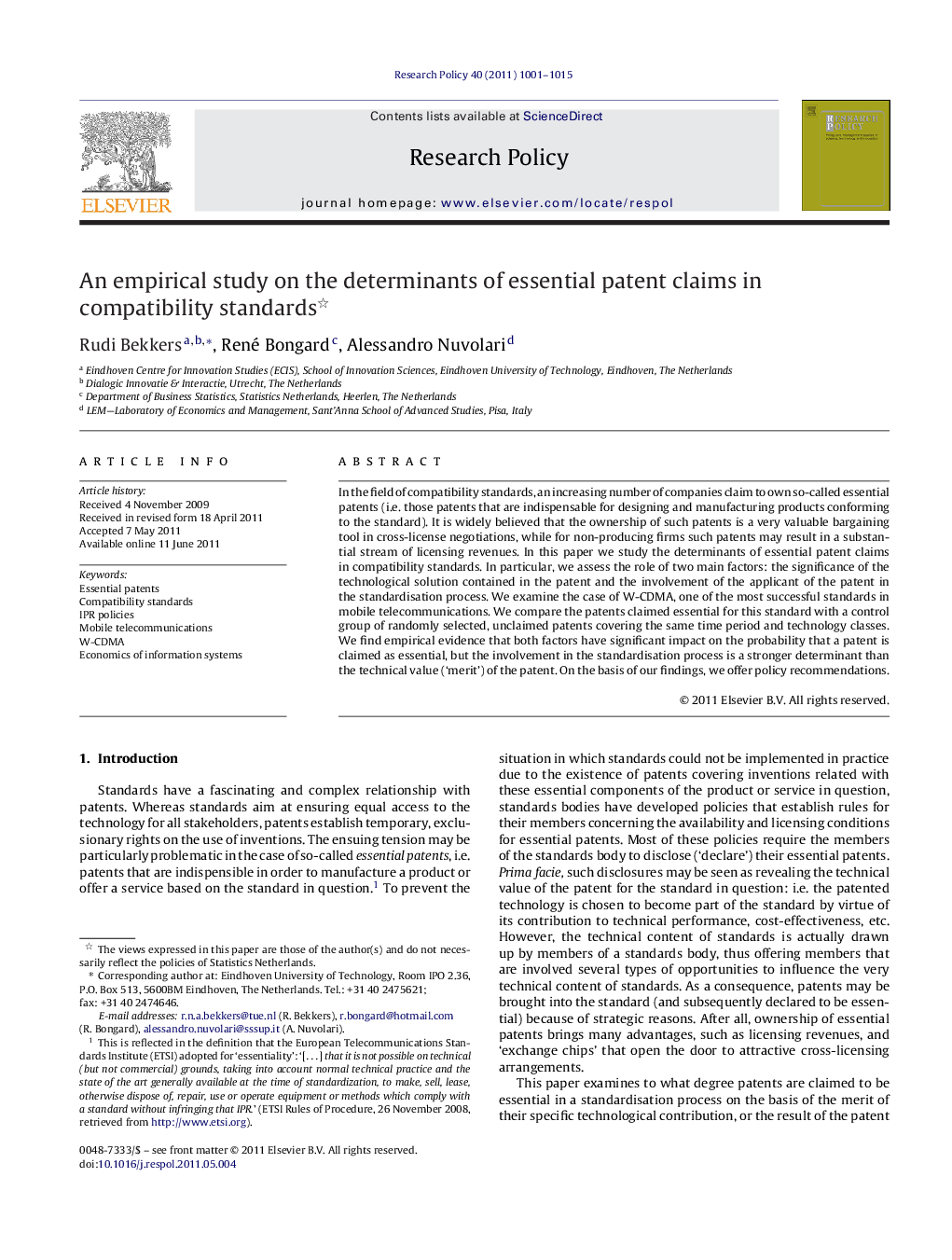| Article ID | Journal | Published Year | Pages | File Type |
|---|---|---|---|---|
| 985215 | Research Policy | 2011 | 15 Pages |
In the field of compatibility standards, an increasing number of companies claim to own so-called essential patents (i.e. those patents that are indispensable for designing and manufacturing products conforming to the standard). It is widely believed that the ownership of such patents is a very valuable bargaining tool in cross-license negotiations, while for non-producing firms such patents may result in a substantial stream of licensing revenues. In this paper we study the determinants of essential patent claims in compatibility standards. In particular, we assess the role of two main factors: the significance of the technological solution contained in the patent and the involvement of the applicant of the patent in the standardisation process. We examine the case of W-CDMA, one of the most successful standards in mobile telecommunications. We compare the patents claimed essential for this standard with a control group of randomly selected, unclaimed patents covering the same time period and technology classes. We find empirical evidence that both factors have significant impact on the probability that a patent is claimed as essential, but the involvement in the standardisation process is a stronger determinant than the technical value (‘merit’) of the patent. On the basis of our findings, we offer policy recommendations.
► We study the determinants of essential patent claims in compatibility standards. ► The first candidate is the patents’ technical value (‘merit’). ► The second candidate is the strategic involvement of its owner. ► Patents claimed essential for the W-CDMA standard are compared with a control group. ► Involvement is a stronger determinant than the technical value of the patent.
